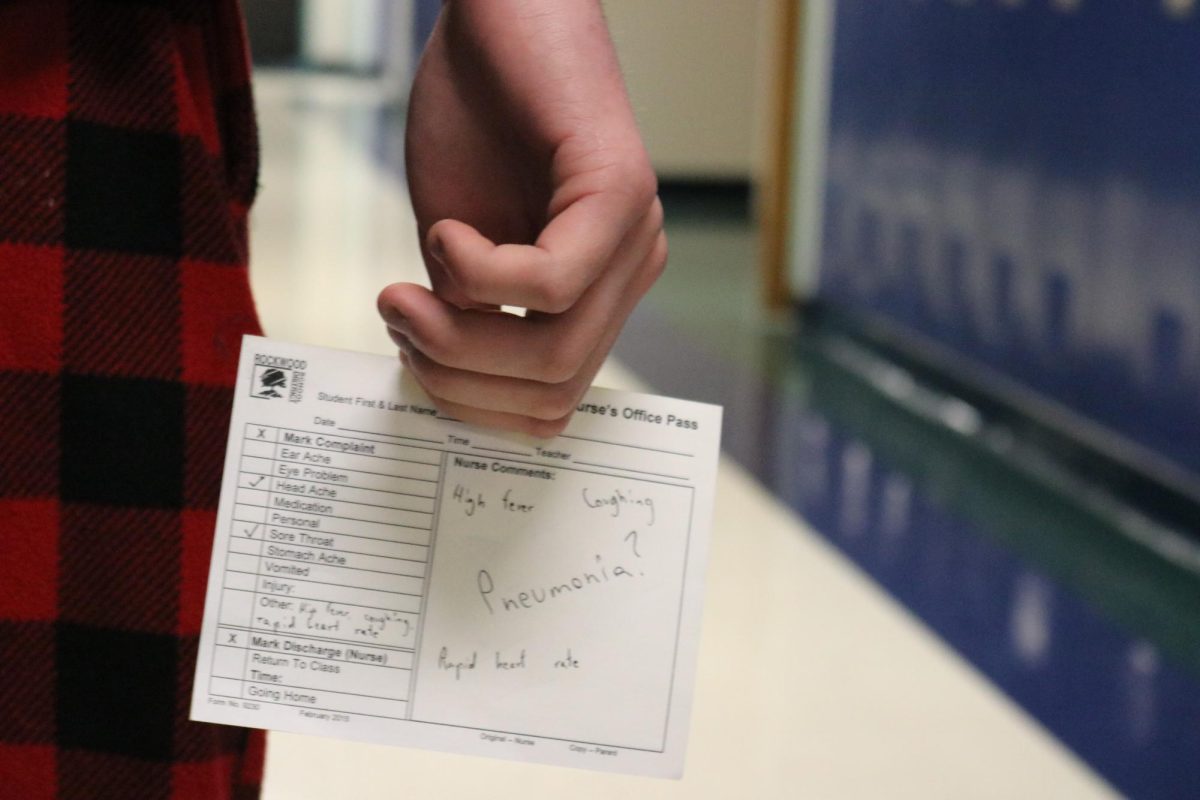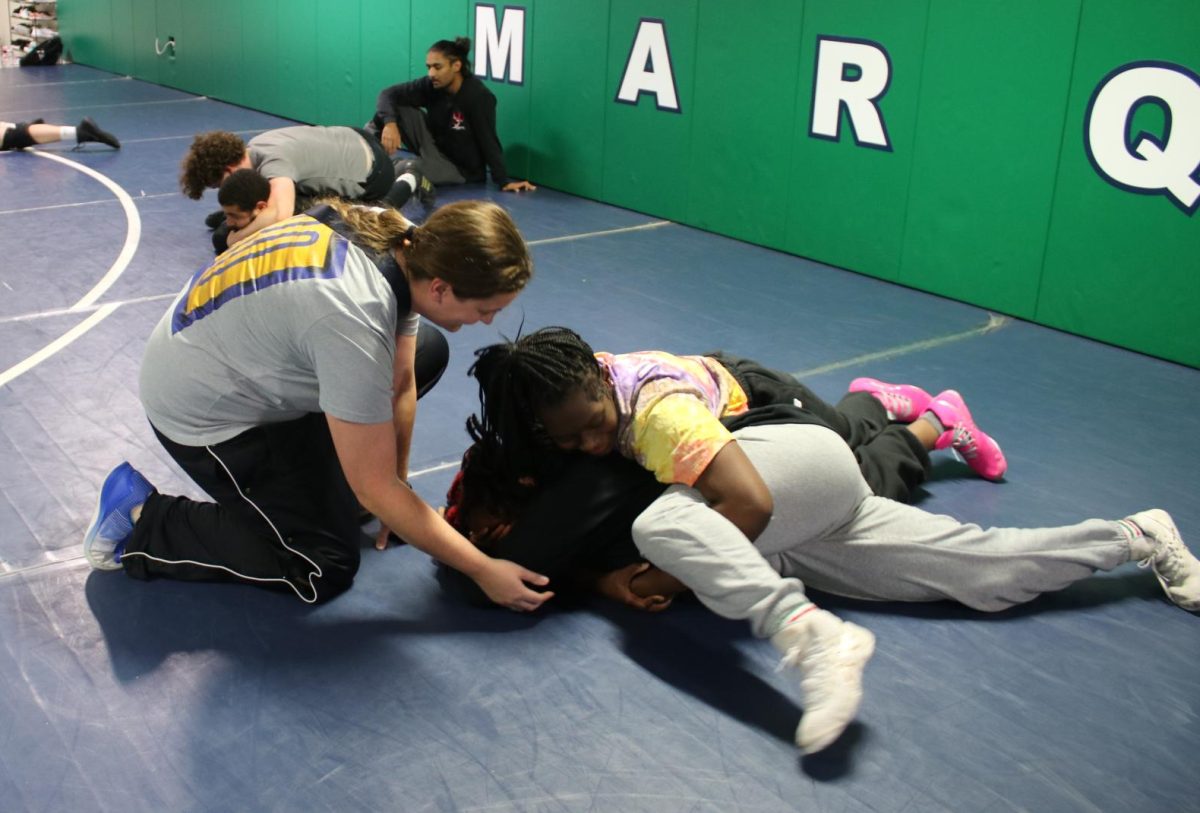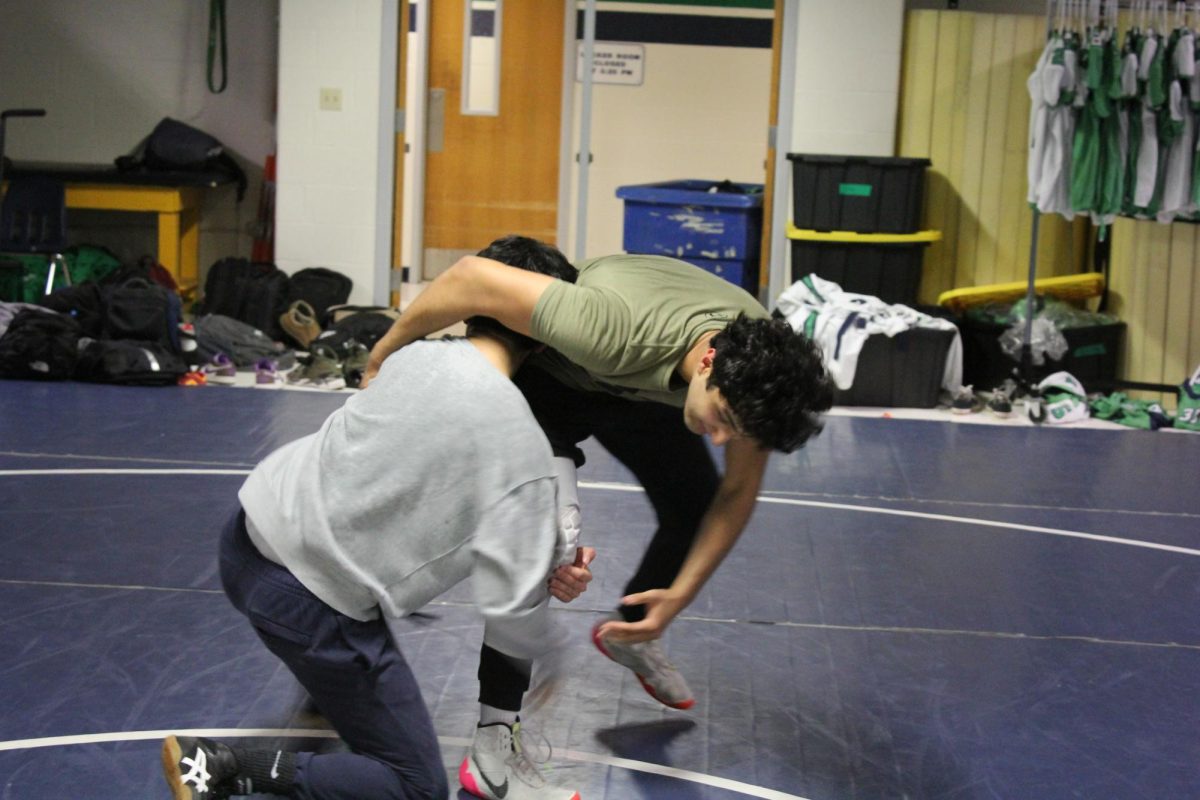Activity helps athletes relieve stress
November 18, 2014
Run. Core. Run. Repeat.
Just like some eat three meals a day, Hannah Pierson, junior, does three workouts a day.She runs for 40 minutes in the morning, does a core workout in the afternoon, and then runs again for two hours in the evening. Pierson does this routine everyday throughout the summer.
She first got into running in 6th grade.
“I wanted to be more competitive with it and also I was going through a lot of hard stuff in my family,” Pierson said. “Running was an outlet for my stress and definitely taught me a lot of life lessons.”
But this isn’t the only time exercise has relieved stress for Pierson.
“In 8th grade, I had a house fire so I got into running even more because it was a place where things were stable for me and I wasn’t going through so much chaos,” she said.
Even though she feels tired at the end, Pierson said she feels good mentally.
“It’s probably when I feel my best during the day,” she said.
After every workout, she said she’s glad she persevered through the run and accomplished her goals.
“Exercise gets your mind off what’s going on around you in your life and you just get into this mental zone,” Pierson said.
Like Pierson, experts say exercise can reduce stress.
A recent study conducted by Ben Greenwood, Assistant Professor of Behavioral Neuroscience at University of Colorado Denver, showed rodents who exercise are protected from the anxiety and depression caused by stress. Exercise changes the brain’s serotonin systems which causes a protective effect against stress.
“We were surprised by the size of the effect,” Dr. Greenwood said. “Exercise produces a very robust protection that is highly replicable across experiments.”
Unlike medication, exercise protects individuals from stress and treats it. While antidepressants like Prozac simply reverse stress, exercise protects an individual from becoming stressed.
Additionally, it does this without any negative side effects, Dr. Greenwood said.
“In fact, exercise has only positive side effects such as reduction in heart disease, cancer, diabetes, obesity and metabolic disease,” Dr. Greenwood said. “Can’t say that about any drug currently used to treat mental illness that I know of.”
Not only does exercise prevent stress, it helps students in school work.
“Exercise class immediately before learning or recall has been shown to improve performance on these tasks,” Dr. Greenwood said.
Greenwood suggests students stay active by joining a sports league, dance club, rock climbing gym or any other activity.
“If students stay physically active, they may be less susceptible to the negative effects of the common stressors that students are exposed to such as social stress or exam stress,” Dr. Greenwood said.
That’s exactly what Pierson does – relieve her stress using exercise. Working out is an outlet for her and many students.
“I’m definitely exercise when I’m stressed because I don’t have to think about any outside things and I can focus on what’s ahead of me, the workout,” she said.


















